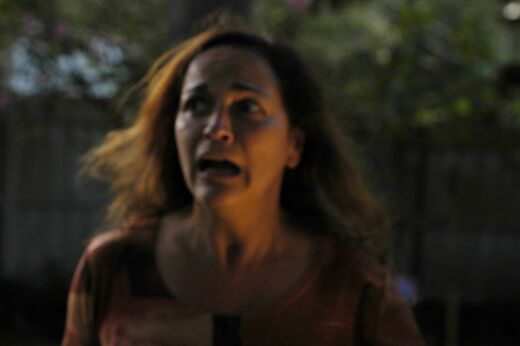
Hollywood’s Growing Fascination With Darkness
In modern movie theaters, when the previews finish, the theater gets darker—and not only literally. What emanates from the big screen these days is a cornucopia of gloominess, mayhem, evil, deep internal struggles and gore. Hollywood enjoys taking us into the twisted minds of its characters.
The more extreme examples of these trends are found in horror movies. For about $8 we can see how young Hannibal became a cannibal; for far less we can rent a dvd showing how a chainsaw massacre had its genesis in Texas.
These films are doing well. The first weekend in February, one of the newest horror flicks, The Messengers, topped the box office. Saw, which cost only $1 million to make, grossed over $102 million in box office and dvd sales. Saw ii boasted even better profit margins. The third weekend of November last year, movie theaters played eight horror flicks considered too gruesome and disturbing for mainstream audiences. Viewings of these films—called the “After Dark Horrorfest”—brought in $2.3 million, putting the festival in the top 10 of box office hits that weekend (and that was with only 500 theaters around the U.S.).
Darkness sells. But it isn’t just confined to horror films and psychological thrillers. Hollywood is putting this edge in more and more movies. Consider, for example, the popular trend of showing the “inner struggles,” or the battle within, of certain characters, getting audiences to identify more and more with evil. It’s not just the movies about Hannibal the cannibal and Thomas “Leatherface” Hewitt (of the Texas chainsaw massacre), but even more mainstream traditional villains like Darth Vader.
Even the good guys are having to come to terms with their dark, inner selves—from Bruce Wayne to James Bond. This summer, audiences will watch Peter Parker deal with the dark side of his spider-like powers. Jim Carrey—the comedic actor known for his elastic face and dynamic silliness in movies like Ace Ventura and Liar, Liar—will now grace the screen with a disquieting rendition of a man facing the idea that he is destined to murder someone.
We haven’t even gotten to television—where our cynical world is producing shows that ponder nuclear fallout, prison breaks, serial killers, gory forensics; one popular show deals entirely with victims of violent sexual crime. On top of this are the bevy of programs majoring in the supernatural and paranormal.
So what of it? Darkness is making good money. Some say it’s a healthy outlet for our own darkness within. But the truth is, this darkness is only making our dark world even darker. The fruits of this media obsession with evil are simply evil.
Some will throw out the chicken-or-the-egg argument that tv and films reflect reality rather than impacting it directly. But tell that to victims of sexually violent crimes, whose attackers were charged up by explicitly pornographic images before their rampages. Tell that to advertisers who expect you to make real-life decisions based on their multi-million-dollar 30-second productions.
The Bible tells us not to allow our minds to dwell on darkness and evil. It says, in fact, to think on whatever things are “true … honest … just … pure … lovely … of good report,” and there is a calculable reason for that. “[I]f there be any virtue, and if there be any praise, think on these things,” it states (Philippians 4:8).
Granted, there is virtue in thinking on the Bible’s true and honest reports of darker occurrences. The Bible doesn’t censor examples of murders, rapes or horrifying prophecies. It doesn’t avoid showing the fallibility of men like King David or the “inner struggle” of the most canonized writer in the New Testament (see Romans 7). Even King David published a psalm that referred to a “dark saying upon the harp” (Psalm 49:4). The Bible isn’t all about daisies and rose petals.
By showcasing elements of darkness, it succeeds at the following: showing the evil human nature is capable of and, therefore, showing how much mankind needsthe Creator God—in whom is no darkness at all.
No Hollywood movie or television drama can boast that result.
God wants human beings to strive for the light—not to bask in our “inner struggle” only to find an edgy, convoluted “goodness” within ourselves.
Yes, note the examples of wickedness in the Bible and heed their lessons, “to the intent we should not lust after evil things, as they also lusted” (1 Corinthians 10:6).
We have to guard our minds against anything that would fight this process (see 2 Corinthians 10:5)—not fantasize about the horrifying, or feed our fascination for why the wicked think the way they do.
Protecting your mind in this darkening world is a battle—a battle within, you could say. We need God, the “Father of lights,” and we need the mind of Jesus Christ. And we must go to the Father and Christ—not profit-driven movie producers or complex heroes—for our rescue.



